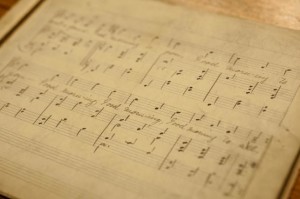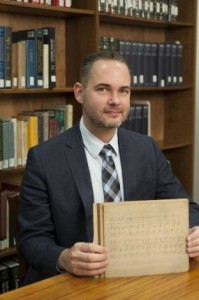¿Pagas “Union Due” (Cuota Sindical)?: Leyes sobre Derecho al Trabajo (Right-to-Work) en Kentucky
Desde los caballos y la energía, el carbón y los coches, el Estado del Bluegrass trabaja muy duro. Y en gran parte, los sindicatos han trabajado duro en nombre de los empleados para proteger sus intereses. Como la mayoría de los residentes de Kentucky saben, la relación entre trabajo y gestión a menudo puede ser motivo de controversia, por decirlo suavemente, y requiere la cooperación de todas las partes a mantener las relaciones cordiales. En los últimos años, muchos estados han aprobado leyes para alterar la forma en la que los empleados, los empleadores y los sindicatos trabajan en conjunto.
Esta es una introducción a lo que se conoce como la leyes de “Derecho al Trabajo” en Kentucky.
Leyes de Derecho al Trabajo (Right-to-Work laws)
En total, 24 estados de la unión tienen leyes de “derecho al trabajo”, ya sean reconocidas en la constitución del estado o en un estatuto legal, aprobadas en los últimos años. En general, estas leyes prohíben a los empleadores exigir la afiliación sindical, o el pago de la cuota sindical, como requisito previo a los empleados para conseguir y mantener un trabajo.
Regulación del Derecho al Trabajo (Right-to-Work laws) en Kentucky
La legislación de derecho al trabajo llegó a un comité de la cámara de representantes del Estado de Kentucky en el año 2014, pero quedó allí. Tanto los republicanos como los demócratas predijeron que la cuestión del Derecho al Trabajo jugaría un papel en futuras elecciones y otro proyecto de ley podría ser propuesto pronto, a finales de 2014 no hay ninguna ley referida al Derecho al Trabajo en los registros de Kentucky.
¿Qué hacen las leyes de Derecho al Trabajo?
Las leyes del Derecho al Trabajo rigen la relación entre los sindicatos, los empleados y los empleadores. Prohíben a los empleadores o sindicatos exigir a los empleados unirse a un sindicato o pagar cuotas sindicales. Asimismo, los empleadores no están autorizados a excluir a los trabajadores no sindicalizados del proceso de contratación. Muchos estados del sur han tenido durante mucho tiempo las leyes de Derecho al Trabajo, pero Kentucky se resiste al cambio al ser un Estado pro-sindicato.
Aunque muchos estados del Norte y del Medio Oeste han añadido sus propios estatutos sobre Derecho a Trabajo en los últimos años, el impacto global de las leyes sobre salarios, afiliación sindical, y convenios colectivos de trabajo aún no se ha determinado con precisión. Naturalmente, los sindicatos se han opuesto universalmente a las leyes de Derecho al Trabajo, mientras que la mayoría de empresas y cámaras de comercio han presionado fuertemente a su favor.
Leyes de Derecho al Trabajo en Kentucky: Recursos relacionados
Si bien actualmente no existen leyes de Derecho al Trabajo en vigor en Kentucky, esto siempre puede cambiar dependiendo de las elecciones y el apoyo de los votantes. Puede ponerse en contacto con un abogado laboral de Kentucky en su área si desea asesoría legal en relación con una cuestión sindical o laboral. También puede visitar Centro de Derechos del Trabajador de FindLaw para revisar artículos adicionales e información sobre este tema.
Estados con leyes de Derecho al Trabajo
Alabama | Arizona | Arkansas | Florida | Georgia | Guam | Idaho | Indiana | Iowa | Kansas |Louisiana | Michigan (Private/Public) | Mississippi | Nebraska | Nevada | North Carolina | North Dakota | Oklahoma |South Carolina | South Dakota | Tennessee | Texas | Utah | Virginia | Wisconsin| Wyoming
Información traducida con fines educativos de: findlaw y The National Right to Work Legal Defense Foundation
Se recomienda leer:
Estados con Derecho al Trabajo Right-to-Work States
Right-to-Work bill dies in Kentucky House committee
Cámara de Representantes del Estado de Kentucky









